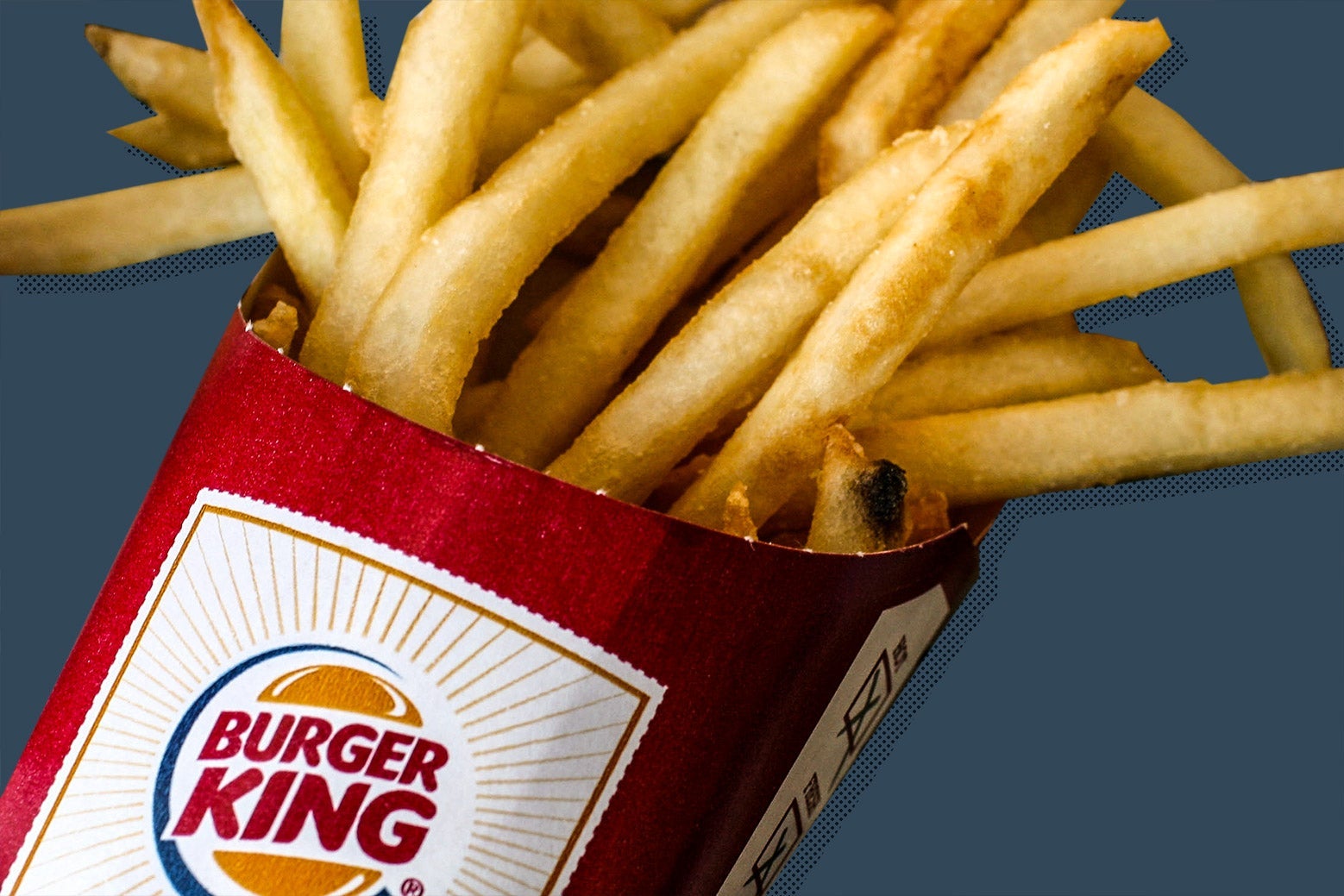Earlier this week, while having a lighthearted conversation with my colleagues over Slack, I casually voiced my opinion that I love Burger King french fries—and not only that, but I also consider them to be the superior fast food fry. The tenor of the conversation abruptly shifted, and I was met with a cacophony of incredulity.
Whatever we’d been talking about before was abandoned as the chat filled with comments like, “I am enraged,” and, “What???” One co-worker suggested I “just eat Styrofoam,” then asked, “ARE Y’ALL ON DRUGS RN.” The following minutes consisted of several people are typing, as people grew increasingly upset with my statement. Everybody seemed deeply unsettled by what I assumed was a fairly innocuous take on the quality of a particular fast food dish.
Surprised by the wave of negativity, I took a step back. Maybe I was wrong? Several other internet sources, I quickly learned, shared my colleagues’ sentiments. Understanding that the only way to have a strong critical foundation is the ability to admit when I’ve made a mistake, I looked inward. I am always open to growth. So I spent a lot of time that evening thinking about what path I’d taken to arrive at such a startlingly galvanizing opinion.
I considered the value of the potato as an essential staple of the American diet, the iconic nature of fast food cuisine, and how this essential starch found its place in the American meal.
I thought of the prevalence and usefulness of frying as a technique necessary to the high-yield process of fast food generation, and the effects of such a process on the conception and consumption of these oil-drenched spuds.
And I must say, I regret nothing.
My opinion is stronger than ever before. The Burger King french fry is the king of fast food french fries.
Are they more artificial than any other fast food fries? Yes. Does every fry have a crust on it as if it had been breaded and double-fried? Yes. Does it seem like, more than any other fry, to have been inverted through a series of funhouse mirrors so that it resembles more the idea of french fries than any discernible food a person would prepare? Yes!
All of these factors contribute to making this aggressively fake fry win out above all others. Because when evaluating the quality of fast food, artificiality is the essential factor. At its best, fast food is the pure distillation of the notion of food, an efficiently crafted series of components that are easily shuffled around in different formations to simulate the supposed variety of fare that fast food is imitating.
Fast food was created to provide the impression of a meal, a capitalistically playful interpretation of the dining experience. It was never meant to be dining. It was always a sleight of hand trick, distracting us with its hypersaturated flavors and textures so we’re fooled into thinking we just sated our hunger.
Fast food is inherently artificial, so its most perfect incarnations will always be the most unrealistic versions available. I eat fast food because it’s food, but not. And those Burger King fries? They’re fries, but not. Take that, McDonald’s.

